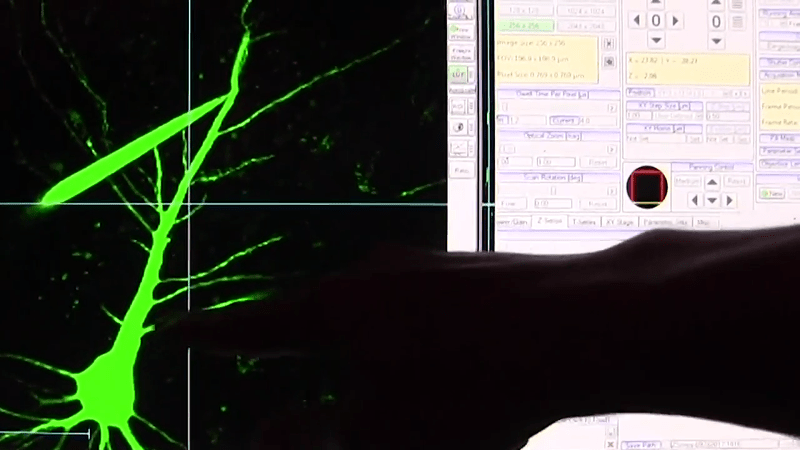Neural networks use electronic analogs of the neurons in our brains. But it doesn’t seem likely that just making enough electronic neurons would create a human-brain-like thinking machine. Consider that animal brains are sometimes larger than ours — a sperm whale’s brain weighs 17 pounds — yet we don’t think they are as smart as humans or even dogs who have a much smaller brain. MIT researchers have discovered differences between human brain cells and animal ones that might help clear up some of that mystery. You can see a video about the work they’ve done below.
Neurons have long finger-like structures known as dendrites. These act like comparators, taking input from other neurons and firing if the inputs exceed a threshold. Like any kind of conductor, the longer the dendrite, the weaker the signal. Naively, this seems bad for humans. To understand why, consider a rat. A rat’s cortex has six layers, just like ours. However, whereas the rat’s brain is tiny and 30% cortex, our brains are much larger and 75% cortex. So a dendrite reaching from layer 5 to layer 1 has to be much longer than the analogous neuron in the rat’s brain.
These longer dendrites do lead to more loss in human brains and the MIT study confirmed this by using human brain cells — healthy ones removed to get access to diseased brain cells during surgery. The researchers think that this greater loss, however, is actually a benefit to humans because it helps isolate neurons from other neurons leading to increased computing capability of a single neuron. One of the researchers called this “electrical compartmentalization.” Dig into the conclusions found in the research paper.
We couldn’t help but wonder if this research would offer new insights into neural network computing. We already use numeric weights to simulate dendrite threshold action, so presumably learning algorithms are making weaker links if that helps. However, maybe something to take away from this is that less interaction between neurons and groups of neurons may be more helpful than more interaction.
Watching them probe neurons under the microscope reminded us of probing on an IC die. There’s a close tie between understanding the brain and building better machines so we try to keep an eye on the research going on in that area.
















There’s also “Reduced ion channel densities in human dendrites” as well.
A related concept:
https://en.wikipedia.org/wiki/Edge_of_chaos
I hate all these articles. “Found anatomical feature! May explain why humans are different from other animals!”
Yes, we’re smarter than other animals. Yes, there is some combination of features responsible for that difference. But there are a million differences, and most of them will contribute little or nothing to us being smarter. Without better network and dynamic models, these differences don’t explain a damn thing.
David Berlinsky says the difference between a human and a chimpanzee is greater than the difference between a chimp and a bacterium.
There is as much difference between a near neighbour of mine and me as there is between me and a bacteria. True fact, and easily verifiable. (We are talking about weight here, and assuming that my near neighbour hasn’t gone on a diet recently).
Considering cognitive ability, it isn’t actually hard to see why the statement is true.
Consider that the bacterium can be considered to be at the zero point of what intelligence is, and the chimp is more or less like a 2 yo child. An adult human is vastly more intelligent than a child. The difference in ability between human and chimp is multiple of that between chimp and none.
They must be fans of Star Trek Voyager
http://memory-alpha.wikia.com/wiki/Bio-neural_gel_pack
They mention in the video that they’re getting all the neural tissue from the brains of people with severe seizure disorders. Might this be a confounding factor in the results? I get that they’re working with what they’ve got since you can’t just take pieces of healthy people’s brains.
It’s all good.. it’s all good… no worries…. lolol
https://www.youtube.com/watch?v=p9MKDWvtk6Q
Sounds to me like they just figured out how the brain filters information such that, different parts of the brain can work on smaller bits of info before passing it along to another part without information overload occurring throughout the entire brain. This can also be how differentiation of lobes and other specialised parts of the brain developed. I mean, other cells do it for the rest of the body by sensing their relative position, it would only make sense that neurons can do the same but slightly more efficiency.